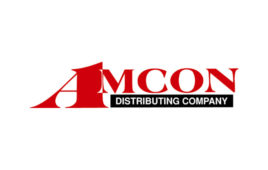 Realizing financial incentives, attracting fleet customers and riding the sustainability wave are some of the benefits retailers can obtain by adding biodiesel.
Realizing financial incentives, attracting fleet customers and riding the sustainability wave are some of the benefits retailers can obtain by adding biodiesel.
By Jon Scharingson
Throw a dart at a map of the U.S. and you’re likely to hit a spot where selling biodiesel makes good business sense for convenience stores.
Financial incentives in the Midwest and the South, sustainability in the West, fleet customers in the East—c-stores are adding biodiesel to their fuel lineups for a variety of reasons.
What’s more, many of these benefits can be found nationwide. For example, sustainability is a huge trend among large fleets on down to individual drivers regardless of their location. For this column, however, we’ll look at incentives on a regional basis.
FINANCIAL INCENTIVES
Let’s start at the bottom line. Many states offer financial incentives for selling biodiesel, and the Midwest and the South are leading the way. Here are three examples that illustrate the potential savings:
- In Iowa, outlets that sell blends of B5 and higher (meaning they contain at least 5% biodiesel) receive a 4.5-cents-per-gallon tax credit. Selling B11 and higher brings an additional three-cents-per-gallon tax rollback. So what’s that look like on a larger scale? A company selling 500,000 gallons of No. 2 ULSD (Ultra Low Sulfur Diesel) a month could see a savings of up to $37,500 per month simply by offering a minimum of B11.
- In Illinois, blends B11 and higher are exempt from Illinois’ 6.25% sales tax. In that same 500,000-gallon-per-month example, that’s a savings of up to $93,750 monthly for selling B11 or higher.
- Finally, Texas retailers can save up to four cents per gallon on the state fuel tax, depending on the blend level. That’s worth $20,000 per month at a B20 blend in the scenario we’ve been using.
CATCH THE SUSTAINABILITY WAVE
The sustainability trend may be best exemplified in California. The state enacted the world’s first low-carbon fuel standard (LCFS), which requires a 10% reduction in the carbon intensity of transportation fuels by 2020. The California Air Resources Board recently determined that biodiesel had the lowest carbon impact among liquid fuels, outdoing gasoline, ULSD, ethanol and others.
Oregon and the Canadian province of British Columbia also have versions of an LCFS. But sustainability is not driven by regulations alone. Corporations and people care more than ever about the impact of their driving, which is causing many of them to turn to alternative fuels like biodiesel.
Consider Kum & Go, which has more than 430 c-stores in 11 states, including the western states of Colorado, Montana and Wyoming. It sells biodiesel blends ranging from B5 to B20.
“I think the sustainability factor is very important,” said Jim Pirolli, vice president of fuels at Kum & Go. “Some of it’s regional, but overall, the broader message of reducing carbon emissions and replacing fossil fuels with something that’s more environmentally friendly is a message that a lot of people can get behind whether they’re fleets or individuals who drive a diesel truck.”
FLEETS CHOOSING MORE
In the East, we’re seeing government fleets get on board with biodiesel for sustainability and financial reasons. Again, this really applies nationwide. But when you have the country’s largest municipal fleet embracing biodiesel, it’s worth taking a closer look. That fleet belongs to New York City, which fuels its diesel vehicles with up to a B20 blend.
“Biodiesel fits within our existing infrastructure, eliminating the need to invest a lot of money in upgrading underground storage tanks,” Keith Kerman, chief fleet officer of the City of New York, said in a case study. “It has been a fairly fluid and seamless transition.”
Public and private fleets get their fuels in various ways, but c-stores are a significant source. That’s why so many of you have fleet-card programs. Adding biodiesel would be a wise move.
ACCEPTING BIODIESEL
Financial incentives, tapping into one of the world’s biggest trends and attracting fleet customers— these are just three examples of the benefits of biodiesel. There are many more reasons to make the switch, and the proof is found across the U.S.
Jon Scharingson is executive director of sales and marketing for Renewable Energy Group Inc. For more information, visit www. regi.com.




